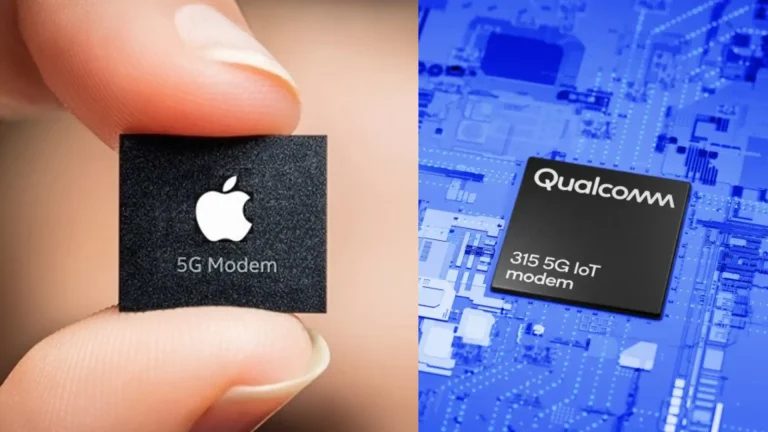The Apple C1 Modem vs Qualcomm debate intensified after a new 5G performance study emerged. Apple’s iPhone 16e features the C1 modem, the company’s first in-house cellular chip. In contrast, Qualcomm’s Snapdragon X75 and X80 continue to power top Android devices.
Cellular Insights, backed by Qualcomm, tested the iPhone 16e against two Android flagships. These Android phones were likely the Galaxy S24 and Galaxy S25. Testing took place in New York City on T-Mobile’s sub-6GHz 5G network. Results came from real-world environments at various distances from cell towers.
The Android devices beat the iPhone 16e across all scenarios. Download speeds on Android phones were 34.3% to 35.2% faster. Upload speeds showed an even larger difference. Android devices were 81.4% to 91% faster than the iPhone 16e. Near towers, the performance gap narrowed slightly. But farther from towers, the iPhone’s performance dropped more sharply.
Qualcomm’s edge came from its use of carrier aggregation, especially uplink carrier aggregation (ULCA). The Apple C1 modem, in comparison, lacked visible ULCA support. It also showed limited downlink capability. These missing features affected Apple’s performance in weak signal conditions.
Cellular Insights concluded that Android phones using Qualcomm modems offered better real-world 5G. They stated that the iPhone 16e performed well under perfect conditions. However, it struggled in the edge cases where modem tech matters most.
It’s worth noting that Qualcomm funded the study. Still, their leadership in modem development gives the report credibility. This is Apple’s first attempt, and it shows.
Independent data from Ookla supported some findings. They reported that the iPhone 16e had better minimum speeds than the iPhone 16. But top Android devices, with newer Qualcomm chips, still outperformed it in peak speed tests.
Apple isn’t staying behind. Leaked plans suggest Apple will release an upgraded modem in 2026. That version will support mmWave and improved carrier aggregation. A modem that can rival Qualcomm’s is expected by 2027.
If you often face poor signal conditions, an Android flagship may serve you better. Qualcomm modems offer faster, more stable speeds in challenging areas. These advantages benefit mobile gamers, remote workers, and anyone who needs reliable connectivity.
For regular users in strong signal zones, the iPhone 16e remains a solid choice. It handles daily tasks well and fits into Apple’s popular ecosystem. But in the current Apple C1 Modem vs Qualcomm match-up, Android takes the win for mobile performance.
Choosing a smartphone today involves more than just design or camera. Modem strength now plays a key role in everyday experience. This test shows how much 5G modem performance matters—especially if you rely on mobile data for work, travel, or content.

